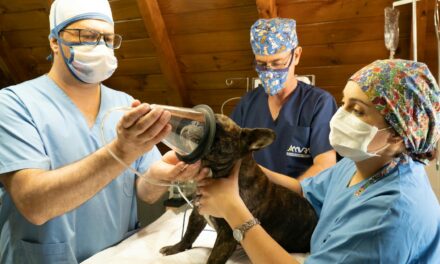A recent study from the Royal Veterinary College (RVC) has shown that the prescription of antibiotics for dogs presenting with uncomplicated diarrhoea does not significantly affect the clinical resolution of the condition. This research, conducted by the VetCompass Programme, suggests that antibiotics may not be essential for treating uncomplicated diarrhoea in dogs. The findings aim to guide veterinary surgeons in offering optimal care to their canine patients, ensuring that antibiotics are used judiciously.
Diarrhoea ranks as the sixth most prevalent disorder affecting dogs in the UK each year. It not only causes discomfort and stress to the dogs but also presents a challenge for their owners. Historically, antibiotics have been prescribed for diarrhoea cases, even in the absence of evidence pointing to a bacterial cause. This practice has persisted for years, despite limited research on the actual benefits of antibiotics for uncomplicated diarrhoea.
Concerns Over Antibiotic Resistance
The misuse or overuse of antibiotics in animals has been associated with the increasing problem of antibiotic resistance, a global health concern. This makes it imperative to understand the actual value of antibiotics in treating canine diarrhoea, both for the welfare of the dogs and to promote responsible antibiotic use.
The RVC’s VetCompass Programme based its study on anonymised clinical records from over two million dogs that received first opinion veterinary care in the UK in 2019. The research employed innovative “target trial emulation” methods to estimate real-world effects using these records.
Study Findings and Implications
The study analysed a random sample of 894 dogs, aged between three months and 10 years, diagnosed with uncomplicated diarrhoea in 2019. Out of these, 355 dogs (39.7%) were prescribed antibiotics, while 539 dogs (60.3%) were not. The analysis ensured that the two groups were balanced in terms of age, breed, body weight, insurance status, and other factors, with the only difference being the prescription of antibiotics.
The results showed a minuscule difference in clinical resolution between the two groups: 88.3% for dogs prescribed antibiotics and 87.9% for those not prescribed. This 0.4% difference was deemed statistically insignificant, leading to the conclusion that antibiotics do not offer any significant benefit in treating uncomplicated diarrhoea in dogs.
Exploring Alternative Treatments
The study also delved into the potential of gastrointestinal nutraceuticals, such as probiotics and prebiotics, for treating uncomplicated diarrhoea in dogs. The findings indicated no significant difference in clinical resolution between dogs prescribed these nutraceuticals and those that weren’t.
Camilla Pegram, VetCompass PhD student at the RVC, commented on the study’s innovative approach, emphasising the importance of the findings for veterinarians and dog owners. She highlighted that the evidence now supports the restricted use of antibiotics for uncomplicated diarrhoea in dogs.
Dr Dan O’Neill, Associate Professor at the RVC, expressed his appreciation for the real-world clinical data provided by VetCompass, which aids veterinarians in offering better care for common canine conditions.
Support for the Study’s Findings
Fergus Allerton, project lead for the PROTECT ME guidelines, stressed the importance of rational antimicrobial use in the face of rising antimicrobial resistance. He believes the study’s findings will encourage veterinarians to consistently avoid antibiotics for treating acute diarrhoea in dogs.
Paula Boyden, Veterinary Director at Dogs Trust, also expressed her support for the study, emphasising the significance of the research in the context of growing concerns over antibiotic resistance.








